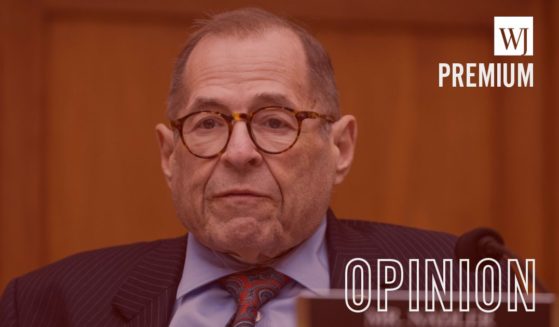
Trump Gives Secretary of the Interior Nominee a Three-Word Directive
President-elect Donald Trump assigned Doug Burgum a singular mission in nominating the governor of oil-rich North Dakota to lead an agency that oversees a half-billion acres of federal land and vast areas offshore: “Drill, baby, drill.”
That dictate from the president-elect’s announcement of Burgum for Secretary of Interior sets the stage for a reignition of the court battles over public lands and waters that helped define Trump’s first term, with environmentalists worried about climate change already pledging their opposition.
Burgum is an ultra-wealthy software industry entrepreneur who grew up on his family’s farm.
Public lands experts said his experience as a popular two-term governor who aligns himself with conservationist Teddy Roosevelt suggests a willingness to collaborate, as opposed to dismantling from within the agency he is tasked with leading.
That could help smooth his confirmation and clear the way for the incoming administration to move quickly to open more public lands to development and commercial use.
“Burgum strikes me as a credible nominee who could do a credible job as Interior secretary,” said John Leshy, who served as Interior’s solicitor under former President Bill Clinton.
“He’s not a right-wing radical on public lands,” added Leshy, professor emeritus at the University of California College of the Law, San Francisco.
The Interior Department manages about one-fifth of the country’s land with a mandate that spans from wildlife conservation and recreation to natural resource extraction and fulfilling treaty obligations with Native American tribes.
Most of those lands are in the West, where frictions with private landowners and state officials are commonplace and have sometimes mushroomed into violent confrontations.
Burgum, if confirmed, would be faced with a pending U.S. Supreme Court action from Utah that seeks to assert state power over Interior Department lands. North Dakota’s attorney general has supported the lawsuit, but Burgum’s office declined to say whether he backs Utah’s claims.
U.S. Justice Department attorneys on Thursday asked the Supreme Court to reject Utah’s lawsuit. They said Utah in 1894 agreed to give up its right to the lands at issue when it became a state.
Trump’s narrow focus on fossil fuels is a replay from his 2016 campaign — although minus coal mining, a collapsing industry that he failed to revive in his first term. Trump repeatedly hailed oil as “liquid gold” on the campaign trail this year and largely omitted any mention of coal.
About 26 percent of U.S. oil comes from federal lands and offshore waters overseen by Interior.
Industry representatives and their Republican allies say volumes could be further boosted. They want Burgum and the Interior Department to ramp up oil and gas sales from federal lands in the Gulf of Mexico and offshore Alaska.
The oil industry also hopes Trump’s government efficiency initiative, led by billionaire Elon Musk, can dramatically reduce environmental reviews.
Biden’s administration reduced the frequency and size of lease sales, and it restored environmental rules that were weakened under Trump. The Democrat as a candidate in 2020 promised further restrictions on drilling to help combat global warming, but he struck a deal for the 2022 climate bill that requires offshore oil and gas sales to be held before renewable energy leases can be sold.
“Oil and gas brings billions of dollars of revenue in, but you don’t get that if you don’t have leasing,” said Erik Milito with the National Ocean Industries Association, which represents offshore industries including oil and wind.
Trump has vowed to kill offshore wind energy projects. But Milito said he was hopeful that with Burgum in place, it would be “green lights ahead for everything, not just oil and gas.”
It is unclear whether Burgum would revive some of the most controversial steps taken at the agency during Trump’s first term, including relocating senior officials out of Washington, D.C., dismantling parts of the Endangered Species Act and shrinking the size of two national monuments in Utah designated by former President Barack Obama.
Officials under Biden spent much of the past four years reversing Trump’s moves. They restored the Utah monuments and rescinded numerous Trump regulations. Onshore oil and gas lease sales plummeted — from more than a million acres sold annually under Trump and other previous administrations to just 91,712 acres sold last year — while many wind and solar projects advanced.
Developing energy leases takes years, and oil companies control millions of acres that remain untapped.
North Dakota is among Republican states that challenged the Biden administration’s public lands rule. The states said in a June lawsuit that officials acting to prevent climate change have turned laws meant to facilitate development into policies that obstruct drilling, livestock grazing and other uses.
Oil production boomed over the past two decades in North Dakota, thanks in large part to better drilling techniques. Burgum has been an industry champion and last year signed a repeal of the state’s oil tax trigger — a price-based tax hike industry leaders supported removing.
The Western Journal has reviewed this Associated Press story and may have altered it prior to publication to ensure that it meets our editorial standards.
Truth and Accuracy
We are committed to truth and accuracy in all of our journalism. Read our editorial standards.
Advertise with The Western Journal and reach millions of highly engaged readers, while supporting our work. Advertise Today.












